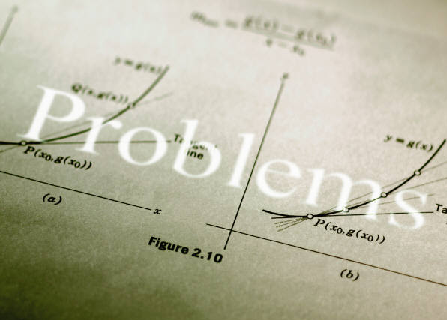
If you look hard enough, everyone has problems. In the sports performance profession, problems provide easy targets for coaching, training, and interventions. Explicitly stated or not, problems make the physical therapist, athletic trainer, strength and conditioning coach, and sport psychology consultants’ jobs easy. The athlete that needs to be “fixed” provides a clear target for intervention. The athlete that is pretty well-rounded without any glaring weaknesses can be a lot more intimidating to help. Easy targets for coaches and trainers however may not be what is best for the athlete.
This is not the only problem with problems however. Athletes pride themselves on their strength and abilities to intimidate and dominate. Few embrace being weak and even fewer enjoy being stigmatized as someone with a “problem.” This reality can lead to hesitancy on the path towards improvement. So many performance specialists slip into the trap of highlighting athlete weaknesses in efforts to advance an athlete’s training régime. Not a compelling sales pitch to someone whose self-image is enshrouded in strength.
Perhaps this problem with problems is best illuminated when considering development of one’s mental game. Too often working on one’s mental game is neglected because sport psychology may be seen as being for the mentally weak or mentally unbalanced. These perceptions are fair. Psychology (and much of medicine) has spent much of its history labeling illness and treating problems. Upon reflection however, one would be hard pressed to suggest that an athlete that gets a bit anxious when taking a penalty shot, walking the back nine of a major golf tournament, or toeing the foul line for a game tying free throw has a “problem.” Distraction, doubt, and stress are normal in the quest towards high performance. A motivated athlete would be remiss not to make deliberate efforts to develop one’s mental game. Presenting this work on one’s game as fixing “problems” or healing a wounded psyche certainly stigmatizes a necessary part of player development.
The problem with problems is not unique to the mental game however. Coaches and trainers that spend majority of their time reminding an athlete of his weaknesses rarely lead the athlete to commitment or excellence. It can be argued that the coach’s ego needs are fulfilled as the athlete with inadequacies cannot thrive without them. Yet the truth is, all athletes have one problem or another and regardless of these things they strive quite successfully. The most successful performance coach does not challenge the athlete’s desire of strong perceptions of self, but rather builds upon them… encouraging a normal human being to strive towards super-normal. Muscle imbalances are not a problem, but rather an opportunity to train for higher performance. Distracting performance anxiety is not a problem, but rather an opportunity to find a next level of mental fortitude. Poor cardio is not a problem, rather an opportunity to develop wire to wire dominance.
Injury that takes you out of practice for a while, depression that inhibits performance in the classroom and on the playing field, and clinical nutrition issues that sap wellness and energy are problems that need to be treated as such. A heavily problem-focused practice however loses athlete enthusiasm and misplaces the focus of training. Challenges to injury resistance, mental fortitude, and conditioning are opportunities for performance specialists to ply their crafts at the highest level. They are opportunities for the athlete to embrace the appropriate coaching and training necessary for finding one’s optimal potential.
Dr. Adam Naylor, CC-AASP. is the Director of the Boston University Athletic Enhancement Center (www.bu.edu/aec). He has serves as a mental conditioning and player development resource for players at all stages of their sports career. He can be reached contacted at adam@telos-spc.com. Follow Dr. Naylor on Twitter @ahnaylor.


